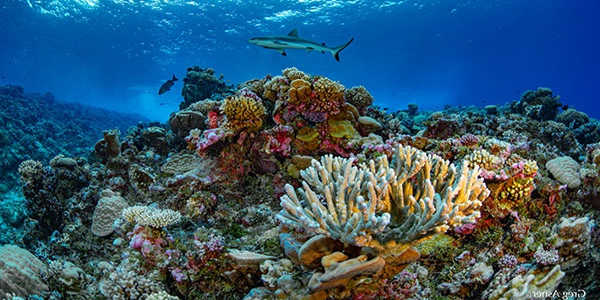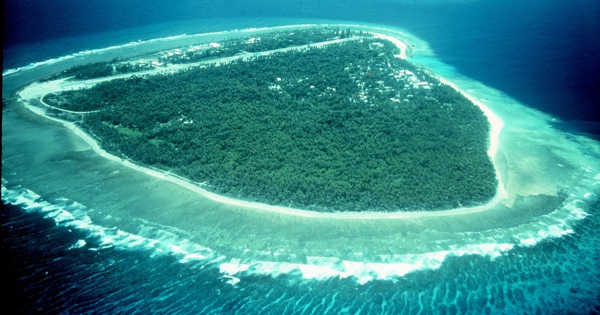Hidden beneath the sea’s surface, coral reefs are among the world’s richest ecosystems, providing food, livelihoods, and environmental protection to communities all over the world. Every day, coral reefs benefit approximately 500 million people worldwide and provide habitat for 25% of all marine species.
Increasing reforestation efforts in coastal areas could significantly reduce the amount of sediment run-off reaching coral reefs and improve their resilience, according to a study led by the University of Queensland. The study examined over 5,500 coastal areas from around the world and discovered that nearly 85% of them leached sediment to coral reefs, making it the second most serious threat to the world’s reefs after climate change.
According to Dr. Andrés Suárez-Castro of UQ’s Centre for Biodiversity and Conservation Science, addressing the issue of sediment runoff is critical if efforts to reduce human impact on reefs are to be successful.
“Increased sedimentation can make aquatic ecosystems more sensitive to heat stress, reducing coral resilience to climate change pressures,” Dr. Suárez-Castro explained. “Future efforts to conserve marine habitats and species are likely to be ineffective unless the link between land and sea is recognized and managed separately.”
Increasing reforestation efforts in coastal regions could substantially reduce the amount of sediment run-off reaching coral reefs and improve their resilience, a new study has found.
Scientists estimate that living coral cover in the Caribbean has decreased by 60% in the last three decades alone, as climate change, overfishing, and pollution are causing catastrophic reef degradation. For decades, The Nature Conservancy has been a leader in coral conservation, with a multifaceted approach to restoring the long-term health of coral reef ecosystems, increasing their resilience to climate change, and addressing the threats that have caused their deterioration.
Excess sediment runoff from land clearing and agrichemical pollution along coastlines can increase the transport of sediment to coastal waters. According to Dr. Suárez-Castro, one of the effects of sediment runoff on coral reefs is a significant decrease in light levels, which are critical for coral and seagrass growth and reproduction. Dr. Suárez-Castro and his colleagues propose that countries commit to land and forest restoration in coastal areas, which will help reduce the amount of sediment runoff.

“Reforestation is extremely important because it maintains the stability of soils, which is critical in limiting erosion risk; it also helps to trap more sediments and keep them from reaching aquatic systems,” he explained. Building coral resilience by reducing sediment and pollution is also important for improving a coral reef’s ability to recover. If land management to reduce sediment runoff does not become a global priority, protecting marine ecosystems in the face of climate change will become increasingly difficult, if not impossible.
According to the researchers, while the benefits of land restoration activities are obvious, getting countries and governments to commit to restoration activities will be difficult. “It’s encouraging to see many countries with high coral diversity committing large areas to land restoration,” Dr. Suárez-Castro said. “However, the cost of reforestation, as well as political and social barriers, may make achieving these ambitious goals difficult.” “If an average of 1000 hectares of forest were restored per coastal basin, land-based sediments reaching coral reefs could be reduced by 8.5% across 63,000 square kilometers of reefs.”
Dr. Suárez-Castro and his colleagues hope that their findings will help local governments identify areas where reforestation will have the greatest impact on coral reefs. “Our approach can be adapted with local data to identify optimal actions for preserving ‘win-wins’ for multiple ecosystems spanning land and sea,” said Dr. Suárez-Castro.
“Several global initiatives, such as the Paris Climate Agreement, are bringing forest restoration to the forefront of global conservation discussions, and our hope is that our research will help to facilitate more informed and educated conversations about the importance of a more integrated land-sea approach.”
Sediment runoff from tainted coastal catchments poses a significant threat to marine ecosystems. Managers can design more effective strategies for improving water quality if they understand where sediments are produced and where they are delivered. A management strategy focuses on the restoration of degraded terrestrial areas, which provides opportunities to reduce land-based runoff from coastal areas and, as a result, promote coral reef conservation.
















